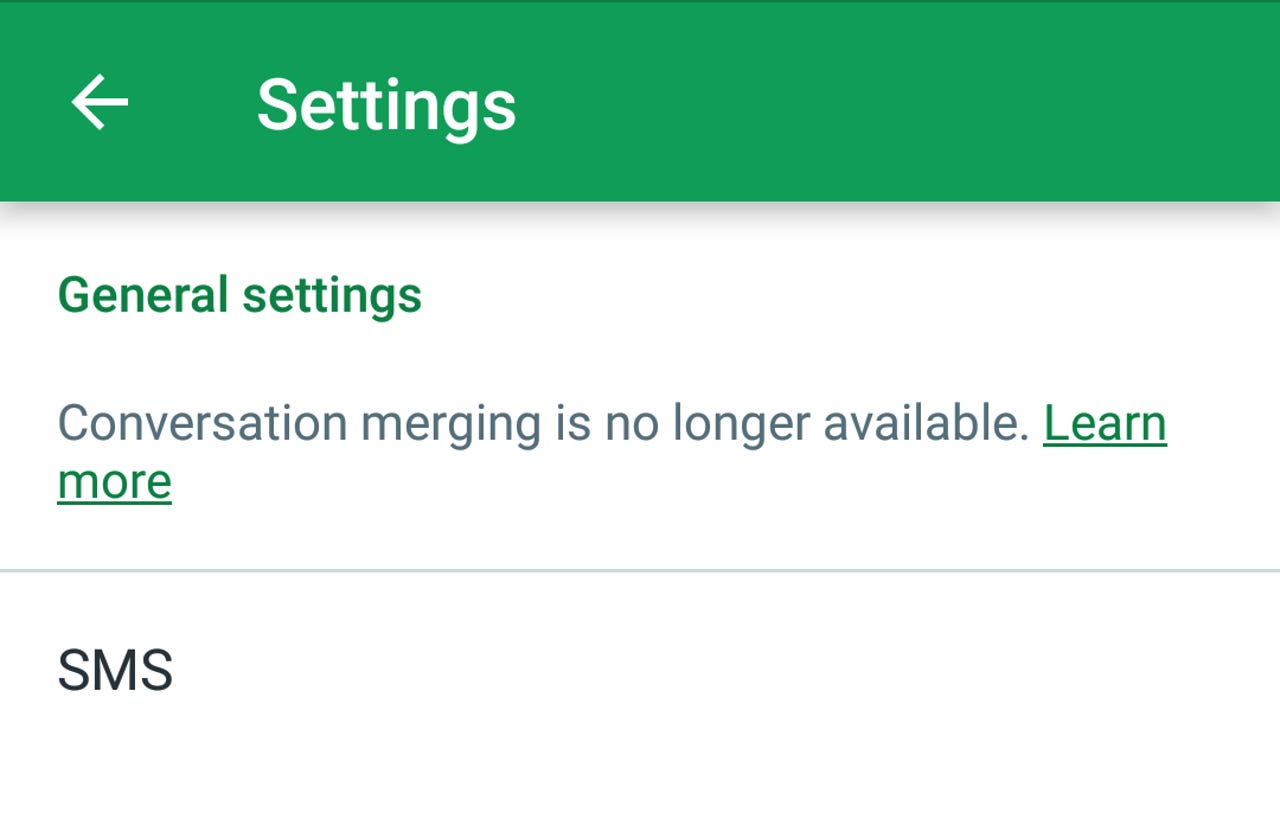Google's messaging mess is desperately in need of consistency

Say what you will with every Android handset maker pushing their own SMS messaging app onto customers, but at least the user experience is consistent.
Meanwhile, those on Google-endorsed Nexus platforms are spoilt for choice, and not in a good way.
The year was 2013, and Vic Gundotra was still running much of the show in the Googleplex, and the decision was taken to push SMS capabilities into its Hangouts messaging app, a platform that Mountain View had morphed out of the Google Chat service, in a not-too-subtle nod towards Apple's iMessage dominance.
Hangouts with SMS did not work as seamlessly as iMessage, and the merger of two services into one conversation chain was often clumsy, but for those that embraced it, it was better than having different communication spread across multiple apps.
But almost three years after it took the decision to merge SMS handling into Hangouts conversations, Google has decided to undo its decision and split out SMS and Hangout messages, and not in a fashion that hides the behaviour behind a setting for users still longing for it, it's simply gone and users are pointed towards Google's Messenger app for "the best SMS text messaging experience".
Users who are still choosing to use Hangouts have been bugged with Messenger nag screens for some time, so the decision to continue using Hangouts for SMS messages is not for lack of education on Google's part, it's simply that they prefer a single view of their communications and now Google will force them elsewhere, citing low usage of the feature as a reason for its death.
Most galling of all is the way the change has been executed, in my case, with no warning at all as the notes within Google's app store still reflect those for version 10, the last version to offer the feature.
Its latest decision may impact on what Google considers to be few users, but it is symptomatic of Google's scattergun, inconsistent approach to communication tools.
The company now has Hangouts, Messenger, and the upcoming Allo as a trio of short messaging applications, while it has Gmail and its Inbox app competing against each other in the email space, and video calling app Duo attacking Hangouts in the visual communication stakes.
Featured
Somewhere inside Mountain View, it can only be assumed someone possesses an understanding of how these different jigsaw pieces fit together -- but from the outside looking in, there is little to divine in the way of overall strategy beyond a Darwinian paradise of competing teams.
Unsuccessful products have long been dispatched with and shut down by Google, but even hugely successful apps like Gmail also find themselves challenged by internal rivals.
It's a pattern of behaviour that creates the impression that Google's products are transitory and liable to taken away on a whim, and the company does little to dispel this cynicism. Those impacted by the closure of products such as Google Reader, Orkut, or Google Wave, could be said to be niche users, but they are also often the most invested and passionate ones. The sort that many companies try to cultivate.
Google should not be surprised when it launches new services that users could be standoffish, and may hesitate to go "all in" on a product. It goes against how the company has traditionally operated, but it would be helpful to know what its approach to its communications apps over the next couple of years is. If Allo and Duo are indeed the future of Google's messaging, then say so, and it would not be a surprise when Hangouts becomes neglected and eventually disappears or fails to be updated.
Whatever Google's plan is, it needs to stick with it and be prepared to bring large changes to existing apps, if needed. As it stands currently with its chopping and changing approach, there are simply too many balls in the air to make sense, especially to casual observers who do not keep up with the twists and turns of Google products.
As SMS usage winds down and is replaced by over-the-top messaging, rather than explaining to an Android beginner which Google platform is best to use to talk to friends in certain conditions, it's much easier to go with something that is cross-platform, has a bigger user base, and offers messaging, calling, and video in one place: WhatsApp.
